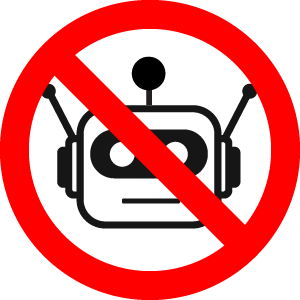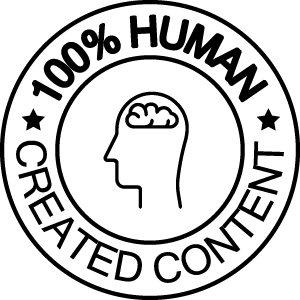Stephen Hawking on AI: a tale of caution that we need to take seriously.
Esteemed as one of the most exceptional scientists in history, Hawking is remembered not only for his immense contributions to science but also for his concern and cautious views on Artificial Intelligence’s (AI) potential implications. Hawking was a learned student and researcher of AI and understood the dangerous consequences that come with it more than anyone else.
At the time he voiced his concerns publicly, many viewed his opinions as alarmist – but the exponential growth in AI technology over the last few years suggests otherwise.
His views are scary, accurate, and absolutely not without merit and we need to take them seriously. As someone who has always looked up to Hawking and share his immense concern regarding the development of Artificial Intelligence, I aim to learn more about his philosophy so that I can help share with the world just how dangerous AI technology is becoming.
In this article, we’ll look deeper into Stephen Hawking’s AI knowledge to see why he believed the technology is as dangerous as it is. Hawking understood that the unregulated development of AI would ensure our demise, and so far, he has been right on the money.
AI Is Left Unchecked, And It Could Be The End Of Us All
In the renowned 2014 BBC interview with Stephen Hawking, shockwaves cascaded throughout the AI world when he stated that “the development of full artificial intelligence could spell the end of the human race“.
At the time, there was no such thing as ChatGPT or the countless other AI-powered technologies that we have today all around us. He was acutely aware that the oncoming wave would likely be left unchecked, leading to irreversible damage and real bad consequences. And boy was he right.
The sobering warning was mostly centered around how AI can be used by nefarious actors to take advantage of technology not regulated in a way that can stop it. The most dangerous of all is the use of AI in autonomous weapons. These weapons have been heavily utilized in warfare ever since this interview, such as in Ukraine right now.

His warning was meant as a wake-up call for the world to take heed of the potential consequences of unchecked AI, yet the world has blatantly disregarded his worries and allowed AI technology to boom faster than ever.
Today, there are no congressional regulations ensuring that Artificial Intelligence is kept in check, and this has already started to show dire results in the world. The use of AI is affecting election results, which is actively undermining our very democracy, as well as countless of other consequences that will be covered later in the article.
So why aren’t more people worried? Why aren’t people marching in the streets attempting convince congress to start regulating AI development, instead of just blindly letting it take over the world like it is today?
Personally, I believe it is a cause of the exposure effect; a psychological phenomenon that suggests that, as humans, we develop preferences for what is familiar.
Truth be told, AI is now so integrated into all our technology that it is hard to know what is fake and what is not. If you go onto ChatGPT right this second and try to have a conversation, it will feel familiar. It will feel like an empathetic human.
People simply don’t realize the extent of how dangerous something is when it sounds so kind and familiar. People forget that no matter how hard it tries to imitate it, AI lacks 100% of all the emotional intelligence and empathy that a human has. Absolutely nothing can make an AI feel…well, anything at all.
This discussion might sound like something taken out of a sci-fi novel, but the reality is that it is here today – and no Congress, Parliament, or law structure in the world seems to be doing anything about it.
AI: A Tale of Greed
Another concern that Hawking has famously shared, which is very familiar to Bill Gates’s stance on AI, is the potential for AI to simply become too powerful for us to handle.
In the 2016 op-ed for The Guardian, Hawking wrote that “the rise of powerful AI will be either the best or the worst thing to ever happen to humanity. We do not yet know which.”
Well, if he could see what is currently going on – I think he’d start to lean in the “worst-thing” direction more than the other.

Although there of course have been benefits to AI, those benefits have mostly been to help marketing strategies and create weapons. Because when you really sit down and think about it, exactly how is AI benefiting the human race so far?
It has made the rich richer and the poor poorer. It has helped kill people and created a borderline civil cold war in the United States through its spread of fake news. It has invaded the privacy of the entire Western world, yet it has somehow managed to evade any form of regulation to keep it from evolving in this direction.
The reality is that AI is first and foremost controlled by humans with money, and humans with money tend not to be those who help the human race. The wealthy only aim to generate even more wealth, and a result, the AI they are helping develop is going in a direction that benefits them and not the people. They are building an AI powered by nothing but greed and death, one they might not control.
Hawking realized that one of the direst consequences we will face is what will happen when those who help develop this technology are no longer capable of restricting or controlling it.

It’s a timeless story of the lion tamer at the circus who felt utterly secure in his command over the lions and their show each night. Despite all his experience, expertise, and hard work with these majestic animals – one day they took him down, killing and devouring him without warning or mercy.
The rich are nothing but fragile lion tamers attempting to control something so much more powerful and dangerous than they imagine. What happens when the lion gets out of the cage?
The Hawking System
I found that one of the reasons Hawking’s worries about AI are so scary is that he himself used AI every single day to communicate. It was he, along with a team of researchers, who developed the communication system that allowed him to effectively use a computer for communication for so many years.
This technology, known as the “Hawking System,” relied on AI to predict words and phrases that Hawking was likely to use based on his past communication patterns. Meaning that, as his physical condition continued to deteriorate, he was still able to work and continue his groundbreaking research and contributions to science.

I believe this is what led him to his very conflicting views on AI; essentially, he knows it could have been used for good, but that it probably will be used for bad instead. Unfortunately, so far he is correct.
In his final book, “Brief Answers to the Big Questions” which was published in 2018 following his death, Hawking emphasized the danger AI will bring to the human race. He wrote:
“AI could be the biggest event in the history of our civilization, but it could also be the last.“
Stephen Hawking literally used AI to warn the world about AI, because he understood it as a necessary evil. Now though, with the uncontrolled development and use of this technology, the human race is going to have to suffer dire consequences as a result.
We Need To Heed Hawking’s Warnings NOW
It is clear that Stephen Hawking’s views on Artificial Intelligence remain highly relevant today; in fact, they are more relevant than ever. AI technology is continuing to advance at an unprecedented rate, and we need to be aware of the consequences its development and use have had so far.
Heed Hawking’s call for responsible development and use. Limit access that AI has to your personal information, ensure you are using human-made strategies to succeed, and ensure you are reading human-made content.
If you are a content creator, let your consumers know that everything you made is human-made, and not just a result of information regurgitated through a lifeless machine.
You can do this, by for example putting any of our free no-ai icons on your site that then links to a statement declaring your intent against using AI such as ChatGPT or other similar AI-generated language models.
This not only adds value to your content, but it also helps stave off the absolutely wild exponential growth of Artificial Intelligence today.
Heed Stephen Hawking’s warnings. Stay in the know. Protect our future. Say No to AI.
THIS ARTICLE WAS MADE WITHOUT THE ASSISTANCE OF ARTIFICIAL INTELLIGENCE.

